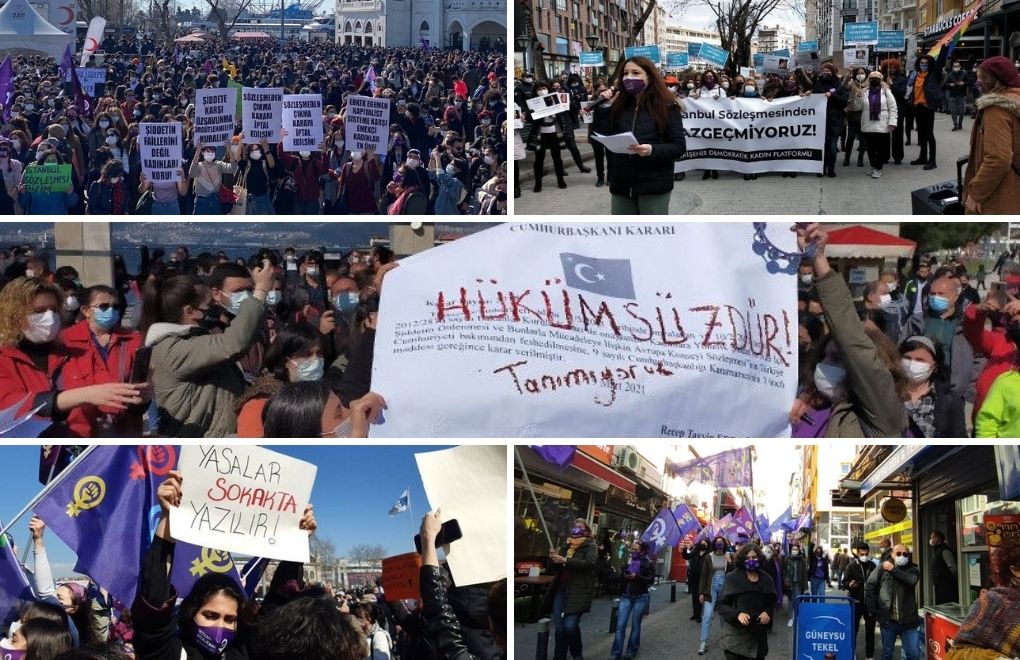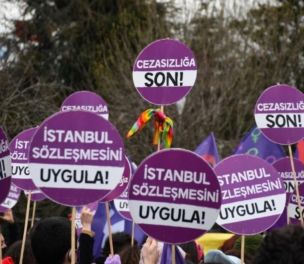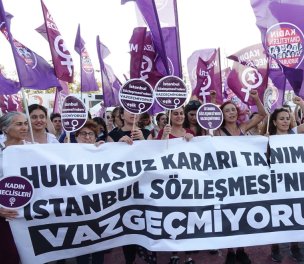Photos: Fatoş Erdoğan
Click to read the article in Turkish
The Ministry of Family and Social Services has, in a response to a parliamentary question by Meral Danış Beştaş, Siirt MP of Peoples' Democratic Party (HDP) two years ago on why the İstanbul Convention was not being implemented, responded saying that "withdrawal from the Convention did not increase male violence."
The response of the ministry, given on October 4, says, "The decision to withdraw from the İstanbul Convention does not in any way mean that "Turkey is making compromises from protecting women or from struggling against violence. Practice of law is an important tool in the fight against violence.
CLICK - bianet Male Violence Monitoring Reports
"İstanbul Convention which is one of the international conventions is one which gives room for provisions to be shaped according to cultures and geographies, which is a framework agreement and therefore which does not include effective provisions.
"When İstanbul Convention was in force, the Law on Protecting the Family and Preventing Violence Against Women number 6284 including effective provisions was the locomotive force in our fight against violence and this Law number 6284 including effective provisions is still in force.
"Violence against women and murders of women are basic human rights violations. Besides punishing such acts with heavy sentences, our work towards preventing such cases before they occur continues in a very wide scope, with the cooperation of all parties in the framework of 'Zero Tolerance' principle; under titles of legislation, education and awareness raising, increasing cooperation and coordination between institutions, strengthening institutional mechanisms protecting and supporting women who are victims of violence, and collecting data and developing statistics."
"Women are not protected in any way"
HDP MP Beştaş reacted to the response of the ministry which came with a delay of two years. She said, "Our parliamentary question was given a response after two years and in the response it was emphasized that the withdrawal from the İstanbul Convention did not increase violence.
"However the acts of violence and murders reflected in the press show that women are not protected in any way and that the withdrawal from the Convention has been of a nature that encourages the perpetrators.
"We submit this response to our question to the appreciation of the public, both in terms of its content, and also in terms of being a blatant example of how the Ministries act in answering parliamentary questions with an approach that disregards the parliament."
What happened?President Erdoğan, on March 20, 2021, issued a presidential decision pulling Türkiye out of the İstanbul Convention. Turkey's decision was notified to the Council of Europe on March 23. The Presidency Communications Directorate said the convention was abolished because it "legitimizes homosexuality." Women have been protesting for the reinstatement of the convention, with many women's groups and opposition parties filing lawsuits for the cancellation of the presidential decision. About İstanbul ConventionThe Council of Europe (CoE) "Convention on Preventing and Combating Violence Against Women and Domestic Violence", also known as "İstanbul Convention", is based on the understanding that violence against women is a form of gender-based violence that is committed against women because they are women. It is the obligation of the state to fully address it in all its forms and to take measures to prevent violence against women, protect its victims and prosecute the perpetrators. As of March 2019, it has been signed by 45 countries and the European Union (EU). On March 12, 2012, Turkey became the first country to ratify the Convention, followed by 33 other countries from 2013 to 2019 (Albania, Andorra, Austria, Belgium, Bosnia and Herzegovina, Croatia, Cyprus, Denmark, Finland, Estonia, France, Georgia, Germany, Greece, Iceland, Ireland, Italy, Luxembourg, Malta, Monaco, Montenegro, the Netherlands, Norway, North Macedonia, Poland, Romania, Portugal, San Marino, Serbia, Slovenia, Spain, Sweden, Switzerland). The Convention came into force on 1 August 2014. |
(EMK/PE/VK)








